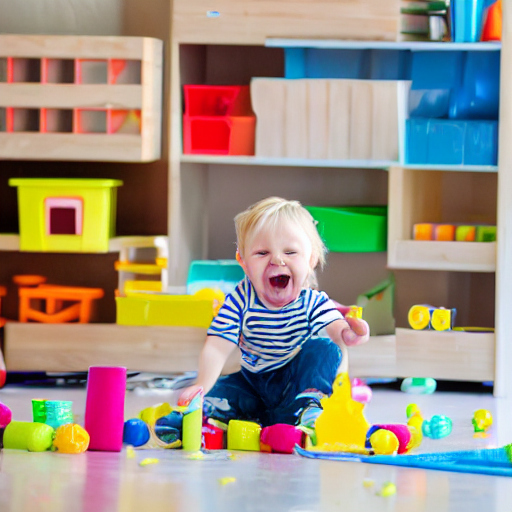Understanding Reluctance in Toddlers
Toddlers are at a magical yet complex stage of development. As they transition from infancy to childhood, their world expands to include more social interactions. However, it’s not uncommon for toddlers to exhibit reluctance when engaging with others. While this behavior can be puzzling for parents and caregivers, understanding the underlying reasons is a critical first step in helping them overcome this hesitance.
Children, like adults, have unique temperaments. Some are naturally outgoing, while others are more reserved. A toddler’s reluctance to interact could stem from shyness, anxiety, or simply unfamiliarity with social settings. Oftentimes, what appears as reluctance is a child’s way of processing new environments or people. Recognizing the individuality of your child helps in tailoring approaches that cater to their specific needs and comfort levels.
Encouraging Interaction Through Play
The Power of Play
Play is the primary way in which toddlers learn about the world and develop social skills. Encouraging playtime with peers is a gentle way to help them become more socially engaged. Play allows children to express themselves, forge friendships, and develop empathy and cooperation skills in a natural, enjoyable setting.
Playgroups and Social Activities
Enrolling your toddler in regular playgroups or social activities can provide them with regular opportunities to interact with peers. These settings are often informal and less intimidating, offering a comfortable platform for socialization. Initially, your child may choose parallel play (playing alongside rather than with other children), but with time and encouragement, they may start interacting more directly.

Modeling Social Interaction
Lead by Example
Toddlers are keen observers. They learn a significant amount about social interaction by watching adults. Displaying positive social behavior in your everyday interactions can serve as a powerful model for your child. Whether it’s greeting neighbors, chatting with friends, or being courteous in public, your actions set a template that your toddler can emulate.
Engage in Role-Playing
Role-playing at home can be a fun and educational way to teach social skills to toddlers. You can act out scenarios like making a new friend at the park or sharing toys. By simulating these interactions, you provide a safe and familiar context for your child to practice social responses and build confidence.
Supporting Your Child Emotionally
Recognizing Emotion
Like adults, toddlers experience a range of emotions they cannot always articulate. It’s crucial to recognize and validate your child’s feelings. If they seem anxious around others, express understanding by acknowledging their feelings. Saying something akin to “I know meeting new people can feel scary” can offer assurance.
Building Confidence
Encourage small accomplishments to build your toddler’s confidence. Celebrate their efforts when they manage to say hello to someone new or share a toy. Providing positive reinforcement supports their growing self-esteem and encourages them to repeat these interactions.
Creating a Safe Environment
Familiar Environments
Try organizing playdates or social interactions in familiar settings. Hosting another child at your home, where your toddler feels secure, may ease them into socialization more comfortably. The familiarity of the environment can reduce the anxiety associated with meeting new people.
Consistency in Routine
Maintaining a routine can also help toddlers feel secure and less anxious. If your child knows what to expect from their day, they may feel more confident about engaging with others. Including time for social interaction in their daily routine encourages them to view it as a normal, non-intimidating part of their day.
Involving Professionals When Necessary
If your toddler continues to show significant reluctance, despite your efforts, it may be beneficial to consult with a pediatrician or a child psychologist. Professionals can provide deeper insights and strategies tailored specifically to your child’s needs. Sometimes, underlying issues such as social anxiety or developmental delays may require specialized attention.
Being Patient and Understanding
Remember that overcoming reluctance to interact is a process that varies for each child. Patience is crucial. Celebrate small milestones and remain supportive no matter the pace of progress. Understand that your toddler is learning and growing at their own speed, and each step forward is meaningful.
Ultimately, the goal is not to change a child’s natural temperament but to support them in developing the confidence and skills needed for healthy social interactions. With your guidance and support, your toddler can grow to embrace social experiences with enthusiasm rather than reluctance.